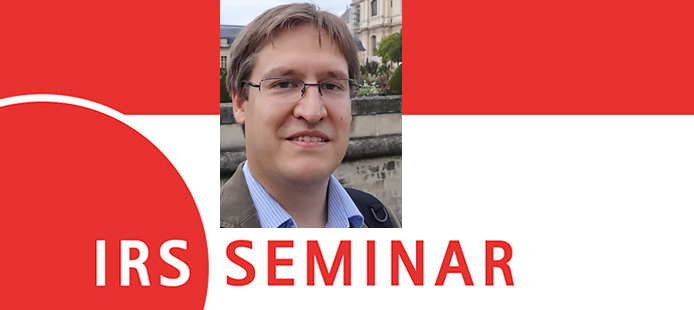Hauptinhalt
Global Entanglements in Small Towns: Contesting Spatial Orders in 20th Century Kdyně
IRS Seminar with Jaroslav Ira, Charles University, Prague

In early 20th century, small towns became an important theme in Czech society. This culminated in the interwar doctrine, movement, and socio-spatial ideology of regionalism. More than just central places for rural surrounding or disseminators of metropolitan culture, small towns were progressively imagined as key agents in socio-cultural rebalancing of Czechoslovakia and counterweighting of centralism and cultural dominance of Prague, and as places, where production of original and high-quality cultural forms and ideas were possible and desirable. In this talk, Jaroslav Ira will focus on a small town called Kdyně in southwestern Bohemia, which became one of centers of the regionalist movement and a sort of laboratory, in which possibilities and limits of the small-town cultural expansion were tested. More specifically, he will trace efforts and activities that intellectually entangled the small town with a broader world, and made it a place, in which the spatial relations of modern society would be revised. While connected to local “metropolitan dreams”, and partly supported by other forms of connectivity, such as economic relations and personal trajectories, the story should also be read as a specific example of more general problem-solving that unfolded in different guises in other countries in Europe or in US, and which sought to re-negotiate spatial relations, and small towns’ roles in particular, as part of broader issues, such as nation building, response to urbanization, combating of economic troubles, or critique of cultural centralization and cosmopolitanism.
Bio:
Jaroslav Ira is assistant professor of history at Charles University in Prague, where he specializes in modern comparative history of Europe with focus on urban history. He completed his PhD at Charles University (2013) with the thesis on local and national identity in historical biographies of Bohemian, Moravian, and Galician Towns in the late 19th century. His current project focuses on small towns in modern socio-cultural and spatial imaginaries and explores how the small-towns’ roles and potentials were conceptualized in the early to mid-20th century Central Europe and how small towns strived for their cultural creativity, centrality and urbanity in modern society. His other projects deal with social functions of local and urban history and uses of small towns’ cultural heritage. His recent publications include a co-edited volume Materializing Identities in Socialist and Post-Socialist Cities (Prague, 2017) and an article “Rethinking the Genre: Urban Biographies as Means of Creating Critical Public Spheres” in Urban History (2019). He has long been a member of EAUH and he is currently involved in several projects funded by Horizon2020 (REACH), Structural Funds (KREAS) and Erasmus+ (TEH21, TEMA+). He will stay at IRS thanks to research fellowship granted by DAAD.

